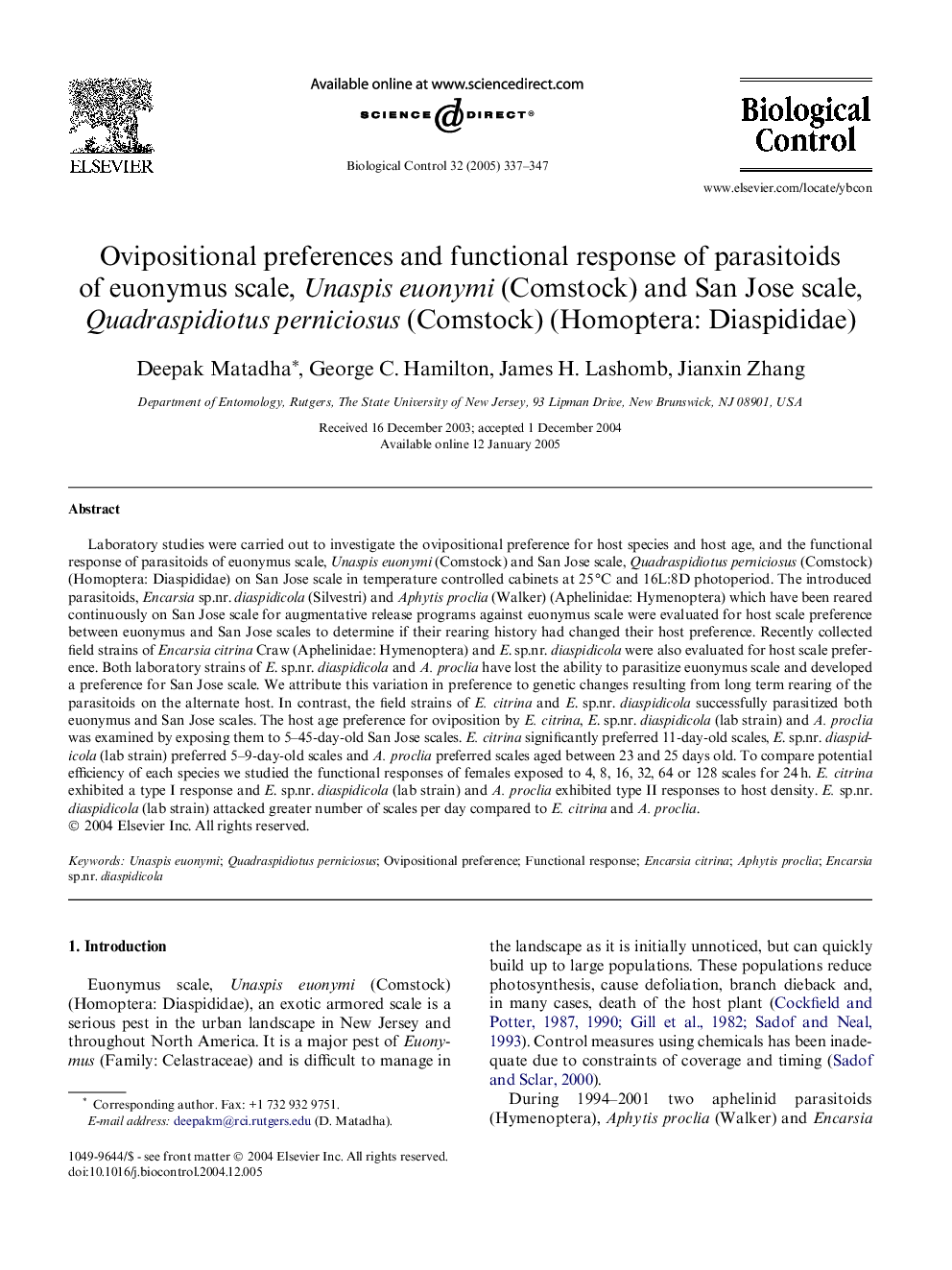| Article ID | Journal | Published Year | Pages | File Type |
|---|---|---|---|---|
| 9471937 | Biological Control | 2005 | 11 Pages |
Abstract
Laboratory studies were carried out to investigate the ovipositional preference for host species and host age, and the functional response of parasitoids of euonymus scale, Unaspis euonymi (Comstock) and San Jose scale, Quadraspidiotus perniciosus (Comstock) (Homoptera: Diaspididae) on San Jose scale in temperature controlled cabinets at 25 °C and 16L:8D photoperiod. The introduced parasitoids, Encarsia sp.nr. diaspidicola (Silvestri) and Aphytis proclia (Walker) (Aphelinidae: Hymenoptera) which have been reared continuously on San Jose scale for augmentative release programs against euonymus scale were evaluated for host scale preference between euonymus and San Jose scales to determine if their rearing history had changed their host preference. Recently collected field strains of Encarsia citrina Craw (Aphelinidae: Hymenoptera) and E. sp.nr. diaspidicola were also evaluated for host scale preference. Both laboratory strains of E. sp.nr. diaspidicola and A. proclia have lost the ability to parasitize euonymus scale and developed a preference for San Jose scale. We attribute this variation in preference to genetic changes resulting from long term rearing of the parasitoids on the alternate host. In contrast, the field strains of E. citrina and E. sp.nr. diaspidicola successfully parasitized both euonymus and San Jose scales. The host age preference for oviposition by E. citrina, E. sp.nr. diaspidicola (lab strain) and A. proclia was examined by exposing them to 5-45-day-old San Jose scales. E. citrina significantly preferred 11-day-old scales, E. sp.nr. diaspidicola (lab strain) preferred 5-9-day-old scales and A. proclia preferred scales aged between 23 and 25 days old. To compare potential efficiency of each species we studied the functional responses of females exposed to 4, 8, 16, 32, 64 or 128 scales for 24 h. E. citrina exhibited a type I response and E. sp.nr. diaspidicola (lab strain) and A. proclia exhibited type II responses to host density. E. sp.nr. diaspidicola (lab strain) attacked greater number of scales per day compared to E. citrina and A. proclia.
Keywords
Related Topics
Life Sciences
Agricultural and Biological Sciences
Agronomy and Crop Science
Authors
Deepak Matadha, George C. Hamilton, James H. Lashomb, Jianxin Zhang,
